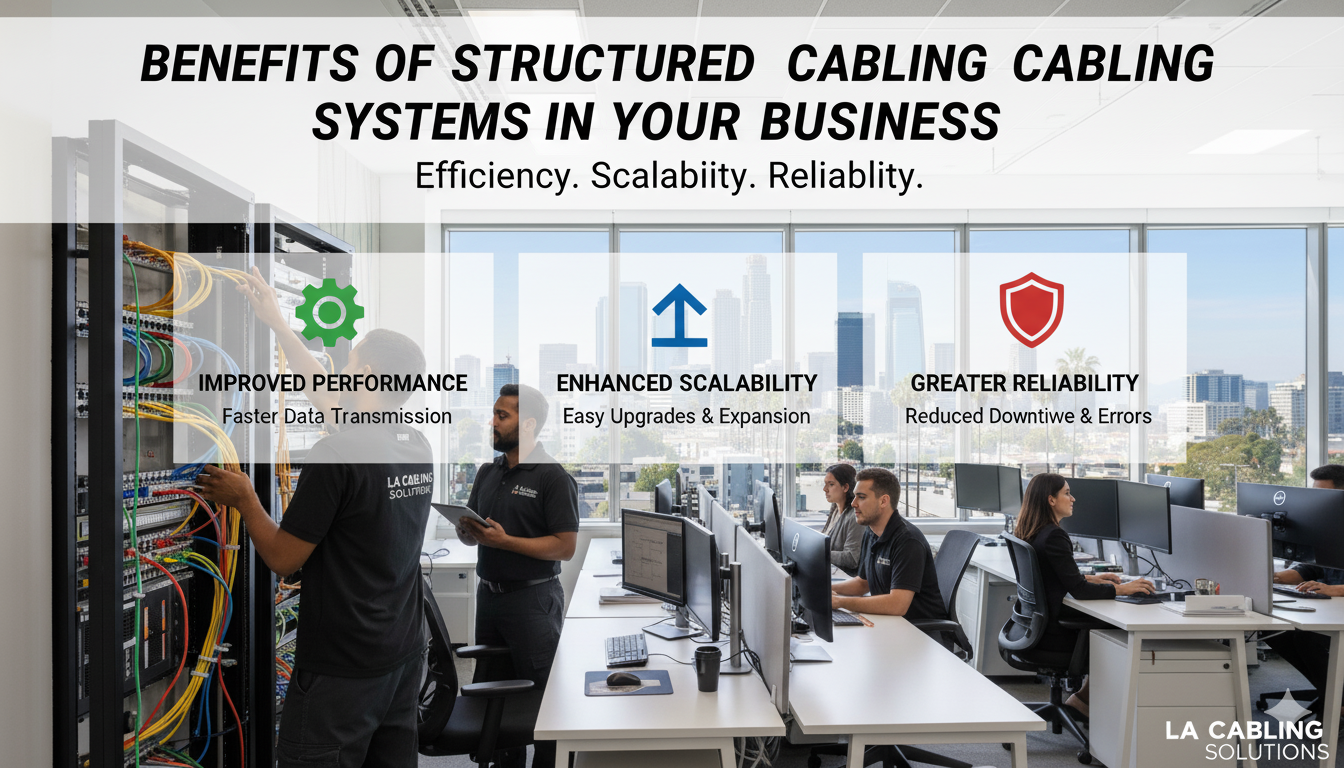In the fast-growing digital world, company success depends on a solid IT foundation. The organized cabling system is one of the most important parts of this infrastructure. Investing in structured cabling offers several benefits, whether your company is a big corporation or a small business. These are 10 benefits of structured cabling systems that will assist you in enhancing your company’s abilities.
-
Helps to simplify IT infrastructure
Your whole network is arranged into one cohesive system through a structured cabling system. Everything passes through a simplified layout instead of managing tangled wires and several systems, which facilitates better and more effective administration.
-
Improves Network Performance
Good cabling design lowers downtime, interference, and data transfer errors. This causes your network to have better communication and faster speeds.
-
Downtime is minimized.
Unorganized cabling frequently causes mistakes and makes troubleshooting take longer. By enabling your IT staff to find and fix problems swiftly, structured cabling lowers these risks and therefore lowers expensive company downtime.
-
Supports Future Growth
Constructed with scalability in mind, a structured cabling system increases your network and adding new devices much easier and faster as your company expands; there is no need to modify your present configuration completely.
-
Cost-effective in the long term
Even if the first cost is higher than for regular cabling, the structured systems reduce maintenance expenses, fewer repairs, and reduced downtime, all lead to long-term savings.
-
Enhances Flexibility
Office space has to be moved toward betterment. Ideal for companies with changing demands, structured wiring makes it simple to move or update your system with little downtime.
-
Supports multiple Platforms
Structured cabling on a single converged network can support a wide range of technologies including phones, computers, security systems, and more. This cleans the system and enhances its operation.
-
Better Aesthetics and Organization
Ordinary cables are a hazard. For visiting guests as well as employees, organized cabling helps to keep the workplace neat, safe, and professional-looking.
-
Strengthens security
Keeping an eye on cables and protecting your network is easier when everything is organized and centralized. Structured cabling system makes access points and data flow easier to control.
-
Compliance with Industry Standards
Using organized cabling guarantees your company abides by rules and industry standards. This is especially important in areas including finance, health care, and government.
Conclusion
For contemporary companies, a structured cabling system is a wise investment. The advantages are obvious, from long-term savings to better performance. Starting over or improving your current network, organized cabling helps your company be successful. Want to future-proof your company? Get in touch with a structured cabling professional now to create a stronger, more dependable network for your company. For better installation and better results, hire a professional team like FDS. They know how to maximize the result of the structure’s cabining system in your business.
FAQs:
Question: What is structured cabling?
Answer: A structured cabling is a proper system that helps you arrange and control the IT and communication systems of your company.
Question: How does structured cabling reduce downtime?
Answer: It helps IT teams avoid costly delays and speed problem solving by streamlining it.
Question: Is structured cabling cost-effective?
Answer: Over time, yes, it cuts downtime, maintenance, and repair expenses even with a greater initial investment.
Question: Can it support future growth?
Answer: Of course. It is meant to grow, better for adding new features and making changes.
Question: What devices can it support?
Answer: It unifies a single network for phones, computers, security systems, and other technology.

